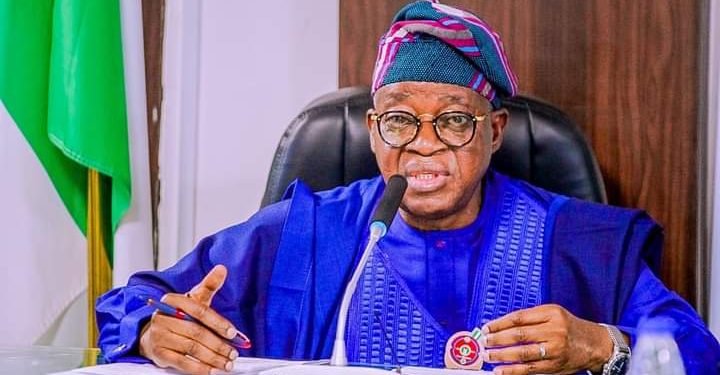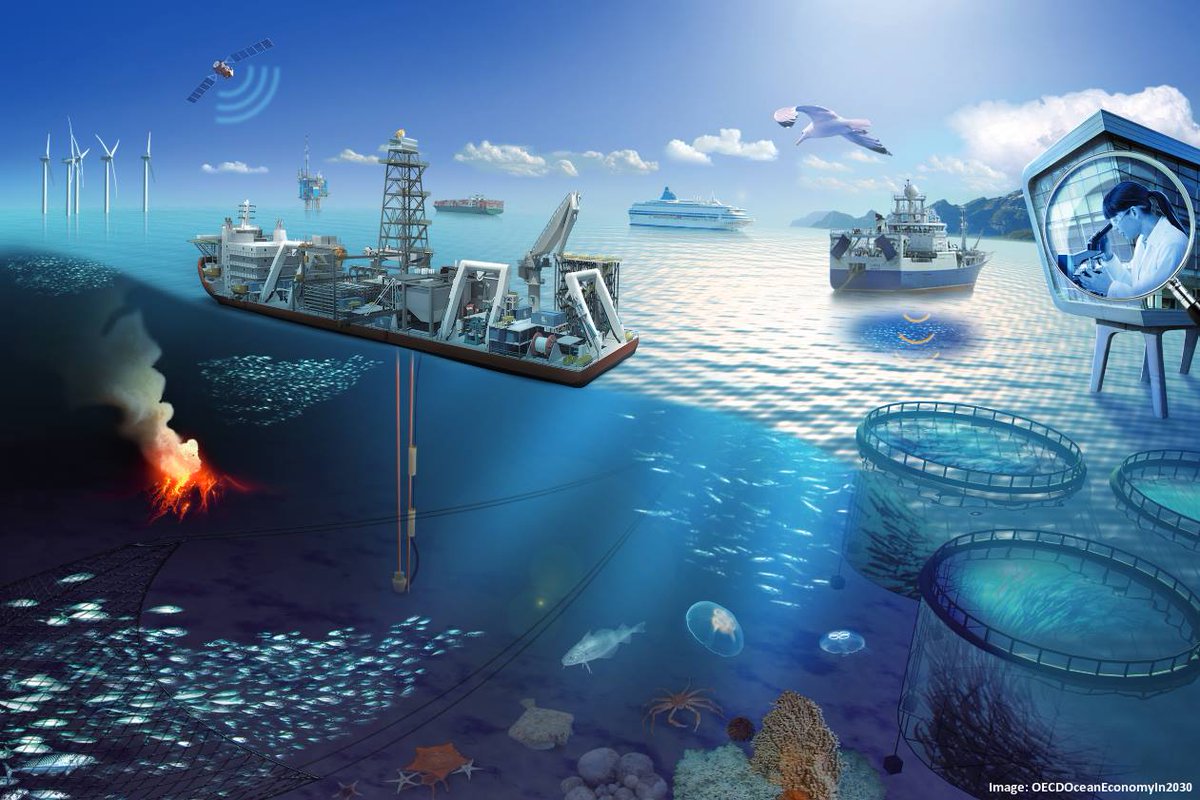The Federal Government is intensifying efforts to unlock the potential of Nigeria’s maritime and blue economy through strategic policies and investments aimed at boosting trade, job creation, and global competitiveness.
During an interactive session with the Nigerian Guild of Editors (NGE) in Lagos, Minister of Marine and Blue Economy Adegboyega Oyetola outlined key initiatives to harness the country’s vast marine resources. With an 853-kilometer coastline and over 300,000 square kilometers of Exclusive Economic Zone (EEZ), Nigeria is positioning itself as a major player in the global maritime industry.
A central part of the government’s strategy is the modernization of Lagos’ Western Ports, including Apapa and Tin-Can Island, with a 48-month timeline for completion. Similar developments are planned for the Eastern Ports, which are being upgraded to establish Nigeria as a regional transshipment hub. These improvements will increase port depth to 16-17 meters, allowing larger vessels to dock and reducing the diversion of shipping activities to neighboring countries. The Nigerian Ports Authority (NPA), overseeing the initiative, estimates that these upgrades will generate over 20,000 jobs and significantly boost revenue.
To enhance trade efficiency, the government is expanding inland dry ports in key locations, including Katsina, Kano, Kaduna, Abia, Plateau, and Borno. These facilities are expected to improve logistics and facilitate smoother movement of goods across the country. Additionally, the introduction of the National Single Window (NSW) and Port Community System (PCS) will digitize trade processes, minimizing delays and increasing operational transparency.
The fisheries sector is also receiving attention, particularly in securing international market access. Nigeria’s compliance with Turtle Excluder Devices (TEDs) has ensured continued seafood exports to the U.S. and EU. To further support the industry, plans are underway to develop modern fish harbors through Public-Private Partnerships, providing better infrastructure for local fishers and boosting exports.
Maritime security remains a key focus, with Nigeria maintaining a zero piracy record in the Gulf of Guinea for three years. This achievement is credited to the Deep Blue Project and Falcon Eye Surveillance System, both of which have enhanced security across Nigeria’s waterways and strengthened investor confidence in the sector.
On the international front, Nigeria has ratified six key maritime conventions and is preparing to bid for a seat on the International Maritime Organization (IMO) Council in 2025. This move is expected to further integrate the country into global maritime decision-making and strengthen its influence in international trade regulations.
As Nigeria continues to implement these initiatives, Oyetola emphasized the importance of media collaboration in promoting the country’s blue economy agenda. He called on stakeholders to support efforts aimed at positioning Nigeria as a leading maritime nation, reinforcing its role in global commerce and ensuring sustainable economic growth through the sector.










